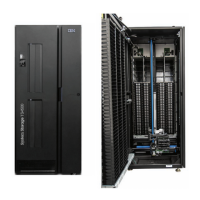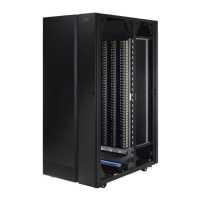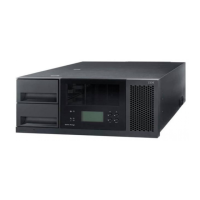After the consistency group formation has stopped five consecutive times,
the timer is disabled and the next consistency group is formed regardless of
the required time.
Session management
A Copy Services session is a collection of volumes across multiple storage units
that are managed together to create consistent copies of data. Sessions are
managed for Global Mirror relationships.
The Global Mirror mode supports data consistency across multiple volumes, logical
subsystems (LSSs), and storage units by using a concept called sessions. For
disaster recovery, it is required that the volumes in a session that are necessary for
recovery be consistent up to the time of failure. If data on these volumes is copied
out of sequence, then the recovery procedures that use these volumes become
useless. Global Mirror uses special algorithms to provide data consistency.
Sessions are associated Global Mirror relationships and are defined with an
identifier (session ID) that is unique across the enterprise. The ID identifies volumes
that are related and that can participate in the Global Mirror consistency group.
You can select a set of volumes across LSSs on multiple storage units to participate
in consistency groups. Logical volumes within a given LSS can be part of different
sessions and different consistency groups. After you create a session, you can add
logical volumes to or remove logical volumes from, a particular session. After a set
of logical volumes become part of the session, a single session-based ″command″
can operate on all of the logical volumes in the session.
Metro Mirror
Metro Mirror is a function of the remote mirror and copy feature that constantly
updates a secondary copy of a volume to match changes made to a source
volume.
With Metro Mirror copying, the source and target volumes can be on the same
storage unit or on separate storage units. You can locate the storage unit at another
site some distance away. Synchronous mirroring means that each update to the
source storage unit must also be updated in the target storage unit before another
update can process. When Metro Mirror receives a host update to the source
volume, it completes the corresponding update to the target volume. This
guarantees data consistency by ensuring that a write operation that completes is
received by the host application after the update has been committed to the target
storage unit and acknowledged by both the source and target storage units.
(Typically, the target volumes are on a different storage unit.) This results in near
perfect data consistency but can result in lag time between transactions.
With Metro Mirror, consistency is guaranteed across all volumes on which an
application does write operations as long as all volume pairs are in full duplex state.
When error conditions affect some of the volume pairs (or different volume pairs at
different time), this consistency might be lost. For example, if one of the target
volumes cannot be updated because a path fails, the corresponding source volume
normally goes into a suspended state, but still allows updates. However, these
updates are no longer transferred to the target volume. Only the bitmap of changed
tracks is created and maintained. So the consistency across volumes is lost,
although the order of write operations is still guaranteed for the other target
volumes.
Chapter 8. Optional feature codes for the DS8000 121

